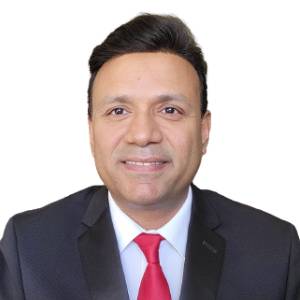
September is Suicide Prevention Month, and this year, the mental health landscape in Florida demands urgent attention. The state has witnessed a disturbing rise in suicide rates in 2022, surpassing the figures of the past four years. In an exclusive interview with Dr. Adil A. Mohammed, a board-certified psychiatrist in general psychiatry from Harmony United Psychiatric Care, we delve into the factors contributing to this crisis and discuss strategies for improving mental health accessibility and prevention efforts.
Dr. Mohammed sheds light on the alarming statistics, revealing that the Crisis Center of Tampa Bay has experienced a surge in calls from individuals seeking mental health advice for their loved ones. In 2022 alone, approximately 3,400 people took their own lives in Florida, with projections suggesting this number will remain consistent or even increase throughout 2023. This heightened vulnerability can be attributed to multiple factors, primarily the lingering mental health effects of the pandemic. The emergence of new variants and the rekindling of fears and concerns related to quarantine have intensified the impact on individuals’ mental well-being.
One significant challenge lies in the limited accessibility of mental health care in Florida. According to the National Alliance on Mental Illness, the state ranks 46th in the nation for accessibility to mental healthcare, leaving millions of adults without the necessary treatment. Furthermore, the shortage of mental health professionals exacerbates the problem, with less than 40% of states having the required number of psychiatrists and mental health practitioners. Financial stress, exacerbated by economic instability, further hampers access to mental health resources.
Timely access to mental health care plays a crucial role in suicide prevention. Harmony United Psychiatric Care recognizes the importance of addressing the immediate needs of patients, offering same or next-day appointments for new patients through both in-person visits and their secure online telehealth platform. Acknowledging that mental health emergencies can be as urgent as physical emergencies, the organization aims to narrow the gap between seeking help and receiving appropriate care.
Improving accessibility to mental health services requires a multi-faceted approach. Dr. Mohammed emphasizes the need for continued awareness campaigns, particularly in Florida, regarding the difficulties faced when accessing mental health resources. Reducing financial, cultural, and logistical barriers is essential, ensuring that individuals in crisis receive timely and effective care. Harmony United Psychiatric Care’s implementation of telehealth appointments addresses the needs of patients residing in areas without immediate access to in-person services, thereby bridging geographical gaps.
Recognizing warning signs is paramount for early intervention and prevention. Common indicators include expressions of wanting to die or feeling like a burden, along with a sense of hopelessness, extreme sadness, or agitation. Any changes in behavior, such as making plans or researching ways to die, withdrawal from social interactions, or taking dangerous risks, should also raise concerns. Family members and friends are urged to take these signs seriously and intervene promptly. Extensive resources, including additional warning signs, can be found through the National Institute of Mental Health.
When it comes to psychiatric patients, effective suicide prevention measures necessitate regular check-ins with psychiatrists who can monitor their mental health, provide appropriate interventions, and prescribe medication if necessary. Referring patients to therapy is also crucial for helping them cope with their problems and make positive life changes. Locking up medications and ensuring access to crisis hotlines are additional steps that can be taken to address the unique needs of this patient population.
Depression often plays a significant role in suicide, although the prevalence rate in Florida is not as high compared to some other states. However, it is essential to address depression as a contributing factor and implement comprehensive strategies to identify and support individuals at risk.
In Florida, the Statewide Office of Suicide Prevention and the Suicide Prevention Coordinating Council collaborate to implement the Suicide Prevention Interagency Plan. This comprehensive approach involves planning, evaluation, targeting special populations, and communication to combat suicides effectively.
To support suicide prevention efforts in Florida, individuals, communities, and policymakers must work together. The CDC emphasizes a comprehensive public health approach that involves everyone learning the warning signs, promoting prevention and resilience, and committing to social change. By identifying vulnerable populations, leveraging and evaluating existing prevention policies and programs, and filling gaps with evidence-based approaches, maximum impact can be achieved.
As Suicide Prevention Month draws attention to this critical issue, it is crucial that we address the current state of mental health in Florida and take proactive measures to prevent suicides. Through increased accessibility to mental health resources, timely interventions, and collaborative efforts, we can make a positive impact on individuals’ lives, supporting them on their journey toward better mental well-being.
Note: The views and opinions expressed in this article are those of Dr. Adil A. Mohammed and do not necessarily reflect the official policies or positions of Harmony United Psychiatric Care.
By Daedrian McNaughton